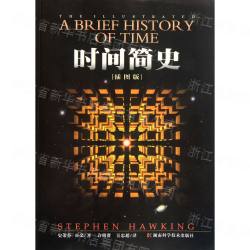-
内容大纲
本书聚焦商务英语教师群体,通过个案研究追踪了四位教师的专业发展道路,探究了商务英语教师如何通过教师合作促进学科教学知识,以及在发展过程中的个体差异,研究发现教师通过教师合作提高了知识水平,从而最终实现了专业发展。本书适合商务英语相关专业研究人员阅读使用,对商务英语教学人才队伍建设具有一定的实践指导意义。 -
作者介绍
吴朋,女,上海对外经贸大学教授,毕业于香港中文大学,获得博士学位。主要研究方向:外语教师专业发展,商务英语教学与研究。近年来在System,Asia-Pacific Education Researcher, Educational Studies,《外语界》等国内外期刊发表中英文论文十余篇,聚焦外语教师专业发展和商务英语教师知识体系研究。主持上海市教育科学项目《现代信息技术支撑的高校教师知识体系构建研究》,主持国家一流本科建设子项目《信息时代商务英语教师的知识构架》,参与教育部人文社科、上海市浦江人才计划和其他省部级科研项目多项。 -
目录
Chapter One Introduction
1.1 Statement of problem
1.2 Theoretical background
1.3 The contextual background
1.4 Research questions
1.5 Significance of the research
1.6 Overview of the book
Chapter Two Literature Review
2.1 Pedagogical content knowledge (PCK)
2.1.1 PCK research:concepts and models
2.1.2 Discussion of PCK research
2.1.3 Examining PCK for BE teaching
2.2 Teacher collaboration
2.2.1 Teacher collaboration in the school context
2.2.2 Individual difference in teacher collaboration
2.2.3 Teacher collaboration among Chinese BE teachers
2.3 PCK development through teacher collaboration
2.3.1 Multiple-factors of PCK development
2.3.2 Rationale for PCK development through teacher
collaboration
2.3.3 Empirical studies on PCK development through teacher
collaboration
2.3.4 The research gap
2.4 Chapter summary
Chapter Three Research Methodology
3.1 Conceptual framework for the research
3.1.1 Re-statement of research questions
3.1.2 Conceptual framework
3.1.3 Working definition
3.2 Justification for qualitative multiple-case study
3.2.1 The research questions
3.2.2 Epistemology about PCK
3.2.3 Multiple-case design
3.3 Research design
3.3.1 Unit of analysis
3.3.2 Case selection
3.3.3 Data collection
3.3.4 Data analysis
3.4 Research trustworthiness and research ethics
3.5 Chapter summary
Chapter Four The Development of the Five PCK Components through
Teacher Collaboration
4.1 Collaborative activities among Chinese BE teachers
4.2 Knowledge of purposes of BE teaching
4.2.1 Teacher A
4.2.2 Teacher B
4.2.3 Teacher C
4.2.4 Teacher D
4.2.5 Cross-case analysis
4.3 Knowledge of students' understanding of BE
4.3.1 Teacher A
4.3.2 Teacher B
4.3.3 Teacher C
4.3.4 Teacher D
4.3.5 Cross-case analysis
4.4 Knowledge of instructional strategies for BE teaching
4.4.1 Teacher A
4.4.2 Teacher B
4.4.3 Teacher C
4.4.4 Teacher D
4.4.5 Cross-case analysis
4.5 Knowledge of BE curriculum
4.5.1 Teacher A
4.5.2 Teacher B
4.5.3 Teacher C
4.5.4 Teacher D
4.5.5 Cross-case analysis
4.6 Knowledge of BE assessment
4.6.1 Teacher A
4.6.2 Teacher B
4.6.3 Teacher C
4.6.4 Teacher D
4.6.5 Cross-case analysis
4.7 Chapter summary
Chapter Five Individual Differences on PCK Development through
Teacher Collaboration
5.1 Participation levels in teacher collaboration and PCK develop ment
5.1.1 The identification of participation level
5.1.2 PCK development of active participants
5.1.3 PCK development of a peripheral participant
5.1.4 Section summary
5.2 The trajectories of PCK development through teacher collaboration
The role of teaching experience
5.2.1 Rocket-up:BE teachers with less than 5-year experience
5.2.2 Slow pace of development:BE teachers with 5- 10 year experience
5.2.3 Staying at plateau: a BE teacher with more than 10-year experience
5.2.4 Section summary
5.3 Chapter summary
Chapter Six Discussion
6.1 PCK components and teaching practice
6.1.1 The two essential PCK components for classroom teaching
6.1.2 Knowledge of assessment in teaching quality control
6.1.3 The importance of knowledge of purposes of teaching
6.1.4 Section summary
6.2 Individual impetus and social impetus for PCK development
6.2.1 The interaction between individual impetus and social impetus
6.2.2 Individual impetus for PCK develooment
6.2.3 Social impetus for PCK development
6.2.4 Section summary
6.3 Chapter summary
Chapter Seven Conclusion
7.1 Research findings
7.2 Significance of the research
7.3 Limitation
7.4 Direction of further research
References
Index
同类热销排行榜
[an error occurred while processing this directive]推荐书目
-

孩子你慢慢来/人生三书 华人世界率性犀利的一枝笔,龙应台独家授权《孩子你慢慢来》20周年经典新版。她的《...
-

时间简史(插图版) 相对论、黑洞、弯曲空间……这些词给我们的感觉是艰深、晦涩、难以理解而且与我们的...
-

本质(精) 改革开放40年,恰如一部四部曲的年代大戏。技术突变、产品迭代、产业升级、资本对接...

 [
[
